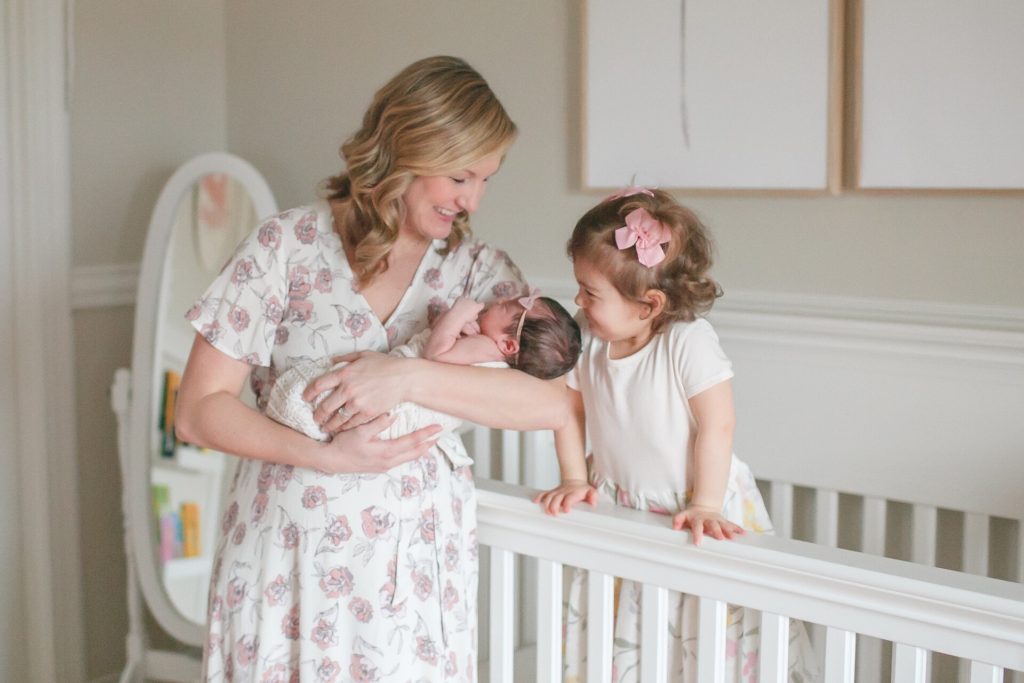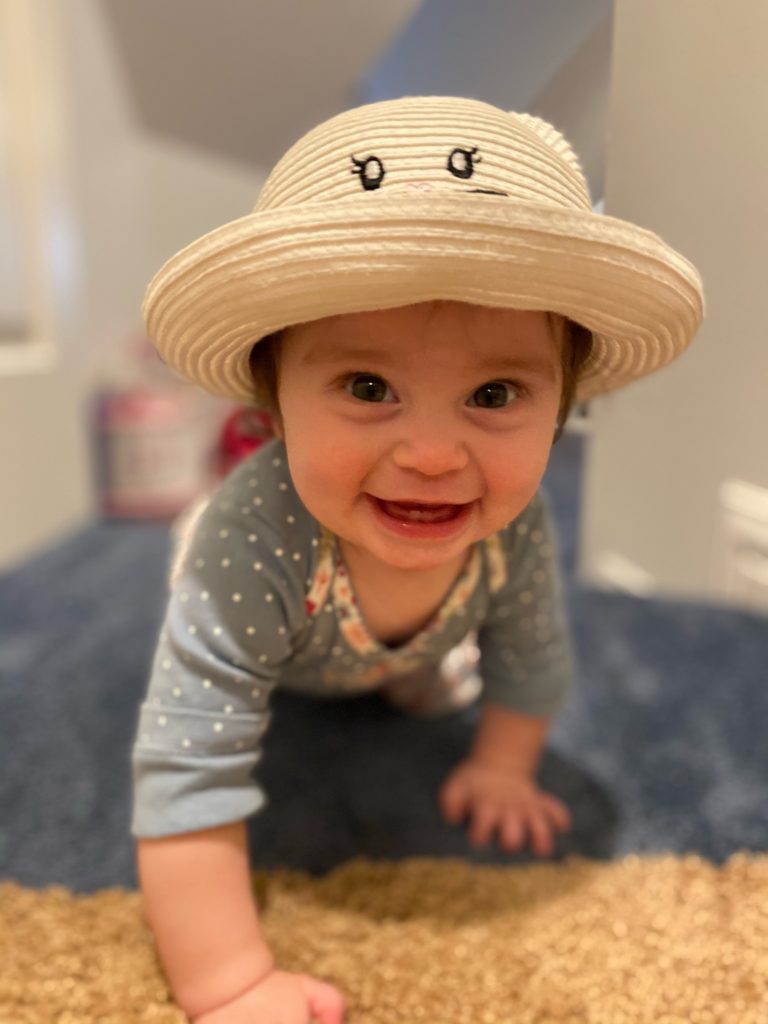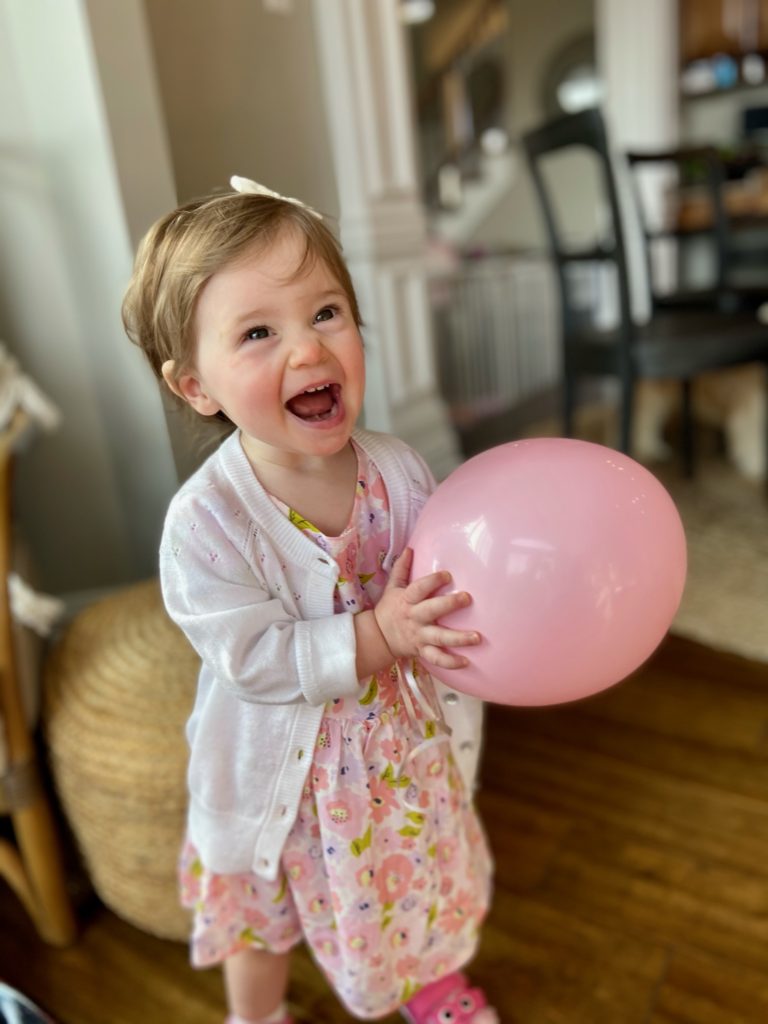
My dearest Olivia,
Last week, we celebrated your first birthday with a cake smash—on Zoom.
To understand how this came to be, let me start from the beginning.
Beginning in late 2019, there were reports circulating in the news of a highly contagious and sometimes fatal respiratory virus spreading in Wuhan, China. At this point, most of the world remained blissfully unaware of the havoc SARS-COV-2 would release on civilization in a few short months.
I recall seeing patients in the office in early January 2020 and being asked, “Should I be worried about this?” “Probably not,” I said. “The virus is on the other side of the world.”

We welcomed you into our family after an uncomplicated delivery on Sunday, March 1, 2020. You were sweet and snuggly and perfect. At that time, there were visitor restrictions in place due to the annual Influenza virus season, and because of this, your big sister, Anna, waited patiently at home for your arrival. We left after a mostly normal hospital stay looking forward to watching basketball at the height of the college hoops season.
Or maybe not. Why? Because as soon as we got home from the hospital, sporting events all over the country were being cancelled. Big Ten basketball tournament—cancelled. High school basketball sectional—cancelled. And ultimately, March Madness—cancelled. We did not understand it well at the time, but these tough decisions likely saved the lives of thousands of Americans.
You see, this tiny little virus began infecting people all over our country. In record time, it had spread from coast to coast and was hitting especially hard in New York City. Emergency rooms were packed with patients complaining of trouble breathing. They had severe headaches, coughs and body aches, and they even lost their senses of taste and smell. Others had a mild illness—a sore throat or a low-grade fever. Some didn’t know they carried the virus at all. People started dying.
As you slept on my chest, I spent hours in between feedings glued to my smart phone. I could not stop reading the news and doing research on Facebook, getting information directly from other physicians who were on the “frontlines” treating patients with what became known as COVID-19.

What I read was horrifying and emotionally distressing and caused more anxiety than I had ever known. Healthcare workers lacked the necessary personal protective gear (gowns, face shields, masks) to keep themselves safe from the virus. My colleagues in the U.S. and abroad were facing a global nightmare.
There was a meme on social media warning that the week of March 8, 2020, “starts with changing the clocks, has a full moon and ends with Friday the 13th.” Little did we know our world would also turn upside down.
This was the week your father went back to work at One America after being off for your birth, only to come home shortly thereafter. His desktop calendar will still show the day he left when he finally goes back to the office in summer 2021, after at least 15 months away.
That same week, toilet paper and other basic necessities started flying off the grocery shelves as rumors of a massive economic shutdown and shelter-in-place orders began to circulate. On March 11, a global pandemic was declared by the World Health Organization.
Within two weeks, our governor ordered all nonessential Hoosier workers to remain in their homes, leaving only for emergencies for the next six weeks to curb the spread of the virus. Terms such as “flatten the curve” and “social distancing” became part of our daily vocabulary.
When Centers for Medicare and Medicaid Services announced the expansion of telehealth services for patients on March 17, I worked to move my internal medicine practice from providing in-person care to a virtual platform using phone and video. When I returned from maternity leave in April, I had a few extra weeks at home with you seeing patients from my laptop. Had you told me that would be possible only a few months earlier, I would have said you were crazy.
We also learned how to detect the virus, by inserting a viral swab (think extra-long Q-tip) into a very uncomfortable part of the nose and “tickling the brain,” so to speak.
During this shutdown period, life came to a standstill. Senior proms and graduations were cancelled. Weddings were postponed. Highly anticipated movies such as the “Top Gun” sequel and latest James Bond were delayed as movie theaters closed their doors. There were no concerts or Broadway musicals. Cruise ships were ground to a halt.
Virtually any large gatherings of people became nonexistent. You could not even dine inside a restaurant. Your father and I jumped onboard with the national increase in home improvement projects, adding laundry room and mudroom makeovers to our growing list of DIY accomplishments.
As the world outside our doors spiraled, we felt lucky to have these extra moments at home with you and your sister, Anna, who was out of daycare to avoid bringing the virus to us.
We watched countless hours of “Mickey Mouse Club House” on the newly introduced Disney+ app. We played in the playroom and made crafts. We took walks around the neighborhood with our dog, Lucy, and visited with friends outside—six feet away, of course. We watched you start to smile and coo, and we embraced Anna’s joy in giving you baths and feeding you bottles. Before your Great Aunt Donna passed suddenly that summer, she got to meet you and hold you, bringing her much joy.
When I went back to work in the office in early May, many patient visits were still being conducted virtually. Face masks were now required indoors. Due to the shortage of masks at the time, our patients dutifully volunteered and delivered hundreds of handmade cloth masks to our door. Other businesses slowly began to open while temperature checks and waiting in your car before appointments became the new reality.
As the pandemic raged, our country became fiercely divided. During this highly contested presidential election year, life-saving tools such as the face mask became a political statement. African American men and women died unjustly at the hands of those sworn to protect them, sparking widespread protests and, in downtown Indianapolis, riots damaged many buildings.
People argued about everything it seemed, including whether the virus that had already killed more than 100,000 people was a hoax as my colleagues and I pleaded on social media for Americans to head simple public health measures to protect themselves and their loved ones.
I am thankful you were not old enough to remember this and hope the lessons we have learned—and are still learning—will lead to a better society where we listen to and respect one another, even if we do not always agree.
Slowly, we began to adjust to the slower pace of life. We spent day after day and week after week at home with you and your sister. When the virus spread was low during summer 2020, we cautiously welcomed a few friends and family back into our lives, gathering outdoors as much as possible. We visited your grandparents in Tennessee, enjoying some precious time away from our home in the sanctity of the Great Smoky Mountains.
In the fall, we watched an odd season of football, in which many games were played with only family members in the stands. We met with coworkers and friends outside of our “bubble” on online platforms such as Zoom and Webex. We were so fortunate to maintain our livelihoods throughout the pandemic as so many lost their jobs and homes and struggled to provide for their families.
Meanwhile, since the beginning of the pandemic, scientists were furiously working to develop a vaccine to prevent the severe illness caused by the coronavirus. On Dec. 18, 2020, I gratefully joined the first wave of healthcare workers all over the country to receive the Pfizer-BioNTech vaccine, a first-of-its-kind mRNA vaccine with an astonishing 95% effectiveness at preventing COVID-19. Three weeks later, I received the second dose and was on my way to developing immunity that would help protect you and Anna until you can get your own vaccines.
I breathed a sigh of relief and for the first time in almost a year felt a glimmer of hope that we could beat this thing.
As the one-year point to mark the start of the pandemic approaches and we prepare to change the clocks once again, I move forward with conflicted emotions. I struggle with the incomprehensible loss of over 500,000 American lives. Mothers, fathers, sisters, brothers. Doctors. Nurses. My patients. May we remember them and carry on their legacies for years beyond the wrath of SARS-COV-2.
And yet, for the first time in a year, I am also more optimistic than ever as millions are receiving the Pfizer, Moderna or Johnson & Johnson vaccines each day and case levels are the lowest they have been in seven months.
Only the future knows how the pandemic will shape our lives. With flu and RSV illness nonexistent this year, will masks forever be part of our culture? I know I will never see a sick patient without one again. Will your father and others go back to work in the office, or will millions continue the flexibility of working from home in sweatpants? Will I still be able to pull up to the side of the curb and have pizza dropped off in my car?
2020 will forever be known as the most difficult year we have ever faced. In the future, you may get a funny look when you tell people when you were born. Yet for us, 2020 will also be remembered as the year you came into our lives. Nothing could have made us happier than watching you grow into the sweet, spunky and LOUD little toddler you are today. Watching Anna be the best big sister who loves you and laughs with you brought light in our darkest days.
Someday, Olivia, you will read this letter, and I hope it gives you a firsthand perspective of this crazy time in our lives that brought us joy and sorrow, gratitude and sympathy, calm and fear.
But most importantly, it brought us YOU.
Love always,
Mama
